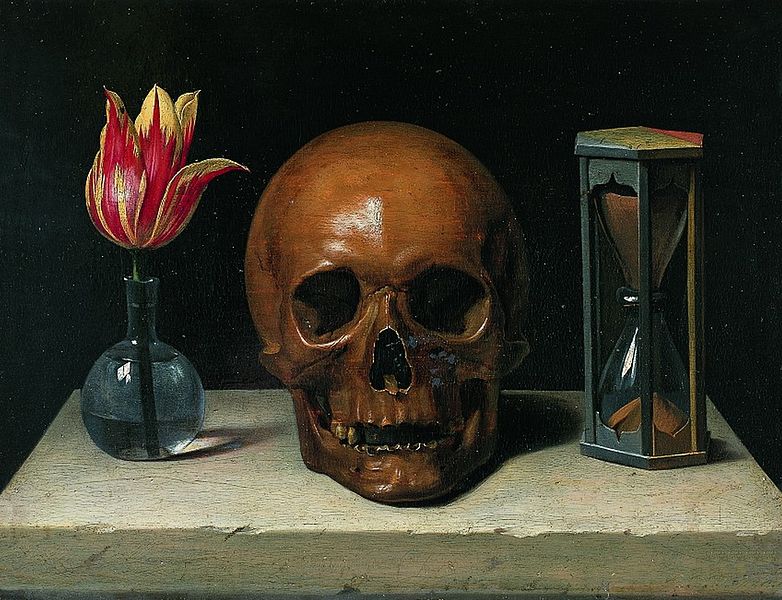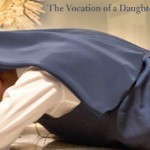
Public Domain: Wikimedia Commons
Can one calculate grace missed?
Sometimes I wonder if life in the convent is more difficult for me because I was away from the Church for so long.
My logical mind calculates the number of communions, Masses and prayer times that I missed in those ten plus years of running away from God and I think, “How does one make up for lost time?”
Of course, I know God does not work this way. I think of St. Ignatius who received an infusion of grace at the Church of St. Paul near Manresa. He described it like so:
[H]is mind was enlightened on many subjects, spiritual and intellectual. So clear was this knowledge that from that day everything appeared to him in a new light. Such was the abundance of this light in his mind that all the divine helps received, and all the knowledge acquired up to his sixty-second year, were not equal to it.
And then there is Elizabeth Ann Seton who experienced a moment of intense grace when she was fifteen years old. It all took place as she lay in a bed of sweet clover and wildflowers:
I prayed, sang hymns, cried, laughed, talking to myself of how far He could place me above all sorrow. Then I laid still to enjoy the heavenly peace that came over my soul; and I am sure, in the two hours so enjoyed, grew ten years in the spiritual life
When I think of examples like this I remember that God’s grace is so far beyond our calculations, (although it is interesting to note that both St. Elizabeth Ann Seton and St. Ignatius tried to communicate the graces they received in calculable years. I think they could think of no other way to communicate the abundance).
God’s grace is much bigger than our mistakes. But God also works in the midst of human realities. Most of us spend a lot of time running from one escape to another, trying our hardest not to face any pain or difficulty. In some sense, that method of dealing with life’s difficulties actually works, especially in modern first-world societies where problems are not as serious or constant.
Primal pains are often successfully muted, suffocated, ignored – for a time. But repression only ends up feeding our deepest pains. Before we know it, our existential suffering can rear up like a startled horse throwing us to the ground of life with a ferocity that can kill. And since we spend so much time trying to ignore our pain, we end up not knowing how to deal with it when it becomes more fierce than our coping mechanisms.
This, I think, somewhat describes where I find myself now. I often like to blame my difficulties on things and people around me. “If only such-and-such would change. If only so-and-so were different,” I say to myself. And it is usually true that my outward circumstances are not perfect. But I also know that regardless of circumstances, God has some work to do in me. I am in the painful process of breaking old, almost primordial habits. They are habits not necessarily rooted in my former atheism but rooted in my humanity.
It feels lonely.
One cannot face this gardening project with any other friend but Jesus.
It feels endless.
Let’s face it, sinfulness is not something that any way of life will solve.
And it feels painful.
God, being an expert gardener doesn’t pull the painless, spidery surface roots but the deep roots that are embedded like nails in the dirt of life.
As I pass bustling malls and slick, modern office spaces, I longingly wonder if maybe I would be happier forgetting it all again and plunging back into the life that many people lead, running from pain and embracing pleasure.
But deep down I know that I am home.
Deep down, I know that my home is no longer an apartment, a city or a particular parish. Deep down, I know that my home is no longer visible. It is intangible and yet more real than anything I can see. Deep in the endless recesses of the Narnia-like walls of tabernacles everywhere lies the source of life, the reason for living, and the reason for standing still.
Even when it hurts.












